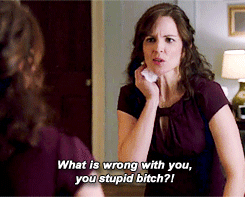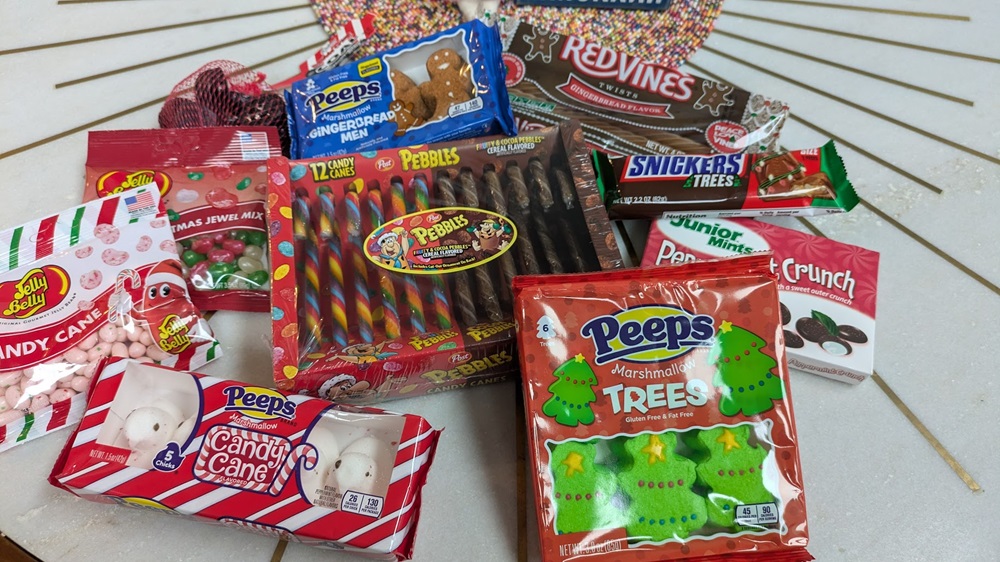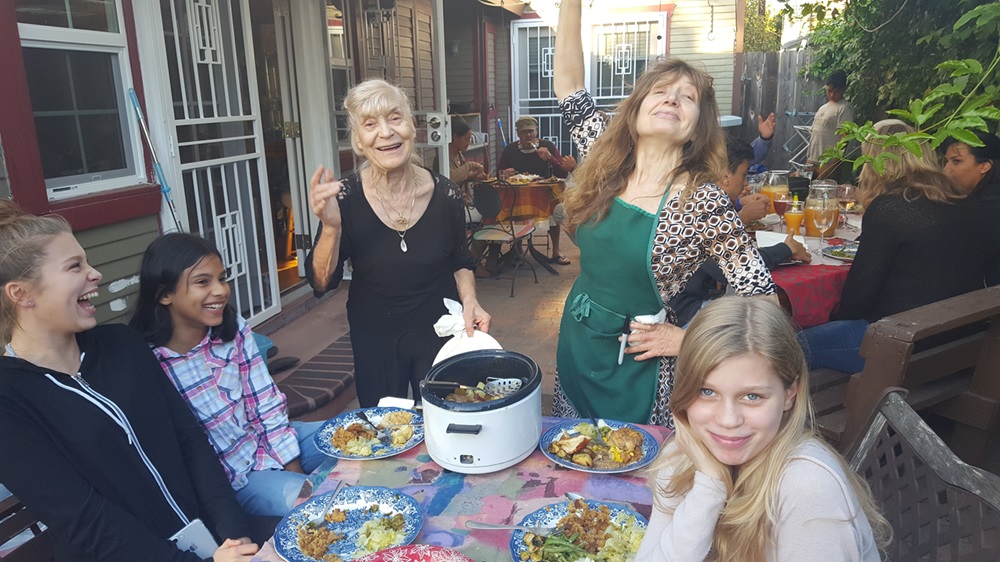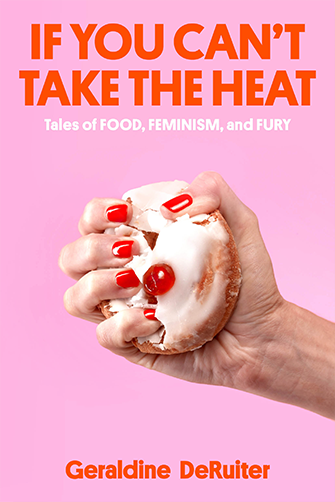12 Things You Should Never Say to a Writer.

My husband always tells me to assume people have good intentions. When I’m frustrated with something someone has said to me, he reminds me not to immediately conclude that they are trying to upset me and then plan an elaborate revenge.
The guy who just cut me off in traffic might not have seen me. The passport control officer does not think that I murdered their entire family in a past life. The person in line ahead of me at the bakery who took the last slice of cake I wanted is not “the pastry equivalent of Mussolini”, Rand says. And when, in the face of these imagined slights, my beloved hears me whisper, “You just made a powerful enemy,” he is quick to reply, “No, no they didn’t.”
When we are insecure, it is hard to assume the best of others. Interactions that should carry no weight are suddenly twisted to confirm our own worthlessness.

When it comes to writers, this becomes even more acute. All questions and statements pertaining to our career are loaded, even the ones that intend no harm. We’ve already questioned all of our choices, and so we find any additional questions to be intrusive or insulting or simply affirming what we already fear about ourselves. We do not see them as general inquiries into our lives, as people wanting to learn more about us. Because, after all, we suck. There’s little else left to learn.
This is our fault, of course. We shouldn’t be coddled for our insecurities. There is a limit to what we can ask of people. And still we do. I’ve compiled a list, after talking to some like-minded souls on Twitter, of things you should never say to a writer. Those of you who are cursed enough to have one in your life, take note. And know that despite this list of self-indulgent complaints, we are eternally grateful for you.
- “Is your book/screenplay/essay done?”
–
No. No, it is not. Based on current estimates, there is a slim chance that we will finish before the earth is swallowed by the sun. Even if it is published, it is not done. Even if we are holding the final manuscript in our hands and our long-suffering editors have screamed “LEAVE IT ALONE” dozens of times, there will still be more to do. To call it our life’s work is not hyperbolic. It is all too accurate. There is no end.
–
A better question: “How goes your slow yet steady descent into artistic madness?”
– - “So, what do you do all day, anyway?”
–
Oh, you know. I eat bon-bons and laugh at the struggle of the working class. I swear, the peasantry is a non-stop source of entertainment, are they not? LOLZ.
–
There is some sort of odd notion out there that writing only necessitates the amount of time required to type a sentence. That there is no second-guessing required, no editing needed, no time spent twisting a topic around in your head until it makes sense. That as a career choice, it is remarkably easy – the work of debutantes and dilettantes. What do writers do all day? We agonize over sentences and we try to befriend words and we fall in love with phrases. We search through hastily written notes for the expression the beautiful brown-haired woman used when we asked her if we should hike up to a remote corner of Gibraltar.
–
“The juice isn’t worth the squeeze,” she told us, and we all fell in love with her in that moment.
–
We have our hearts broken every second we’re alive with how damn beautiful and tragic the world is and then we try to turn that feeling into words and hope that someone will read it and say, “Yes. I know.” We strive to make the familiar feel new and the new feel familiar. And when we fail, as we so often do, we curl into a ball and question every decision that we’ve ever made. That is what we do all day.
–
(Or sometimes we fuck around on reddit. Whatever.)
– - “Do you ever hope it’ll all turn into something real?”
–
BWahahahahahahahhahaha (hysterical laughter continues for several long minutes).
–
I’m a writer, kitten. All I do is hope.
– - “Wow. You must have a really patient/supportive/successful spouse.”
–
There is a belief that if you write, the balance in your relationship is off, and that your spouse must give far more than they get. From a personal standpoint, I cannot argue with this. My long-suffering husband has loved and supported me more than I’ve deserved, but that has been true for a decade. It began in the epoch before I started this blog. But for many years, even when I pulled in a steady paycheck, his support had less to do with finances and everything to do with whispering the following into my ear as I fell asleep: “You are beautiful. You are talented. You are going to bake me cookies and write me a book.” He said these things so often, that though I didn’t come to exactly believe them, I didn’t wince so noticeably when I heard them. But people are often not commenting on the fact that he is the lighthouse on the rocky shores of my psyche. They are referring to pecuniary support. Sometimes he’s paid the bills. Sometimes I have.
–
There are lots of ways that writers support themselves. We take freelance gigs, we write for large publications, we proofread, we come up with taglines, we let that weird guy who lives down the street touch our feet in exchange for canned goods. Do not question how we make our livings. It is either dark and hard-won or surprisingly boring and in either case, none of your business.
– - “Hey, how’d you get into writing? Because my kid is looking for a summer job.”
–

– - “God, I could never spend that much time in front of a computer.”
–
Oh, I know. And so much of that time is spent thinking. The horror.
– - (For those of us who publish regularly) “I’ve noticed you haven’t written anything in a while.”
–
Really? I haven’t? Thank you for bringing that to my attention. Because it’s not as though I’ve been obsessing about that as I stare at my ceiling in the middle of the night trying to coax the words out of my head while feebly fending off crushing feelings of self-doubt. Nope. Definitely not.
– - (For those of us who publish regularly) “I feel like you lost your groove, but now you’re back!”/”Your writing is getting really good!”
–
I appreciate that it is meant as a compliment. But all this comment will do is inspire me to go back through my work and scrutinize what you felt wasn’t up to par. The result is that I will hate myself more than usual, and if I want that feeling I will go to barre class. Praise someone’s work, but don’t do so in relation to how much they sucked before. When cast in this light, it becomes a sort of insult. Behold:
–
“You look fantastic! And good thing, too, because you were sort of repellent before, you know?”
– - “But, like, what do you actually do?”
–
 –
–
What do I do? I struggle to find validation in a world where words are such a devalued currency that we find repeated misuse of the term “literally” to be acceptable.
– - “Where have you been published?”
–
Thankfully, I am rarely asked this, and when people do ask where I write, I shrug and say, “Oh, just on my blog.” I am complicit in negating the value of my own accomplishments.
–
I know people are trying to express a genuine interest in the writer’s work, but this question is essentially asking him or her for a resume, which most people don’t have to offer when discussing what they do. This question leaves the asker’s lips intact but is transformed by the time it reaches a writer’s ears. “Prove yourself,” it now says. And more often than not, we can’t.
– - On completing projects: “It shouldn’t take you that long, right? Because you write for a living?”
–
Yes, of course. I am billing you for hours spent eating the aforementioned bon-bons. (See #2.)
– - “Can I read it?”
–
Oh, wow. Seriously? Thank you. Thank you. That’s incredible that you would ask and I’m completely honored and some small part of me wants to say yes but an even bigger all-consuming part of me wants to run screaming because what if you hate it and what if it’s no good and what if I left the stove on and my house burns down and I didn’t back up that essay oh god.
I’m touched beyond belief. I’m also terrified. But what did you expect? I’m a writer.
–
And one last note to all the writers out there: Are we being neurotic? Yup. Over-sensitive? Probably. Way too demanding? Yeah. We shouldn’t be coddled. We should own up to our insecurities and confront them head on. With discomfort comes growth, as my therapist so often tells me. Next time someone says something that strikes us the wrong way, we need to remember their intent and realize that they are simply expressing a heartfelt interest in us and our life’s work.
And then we need to name a minor character after them and take all our anger out that way. Because revenge is best served between neatly typed, double-spaced lines.








